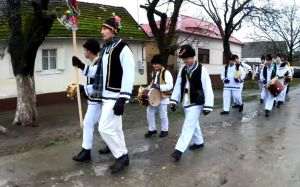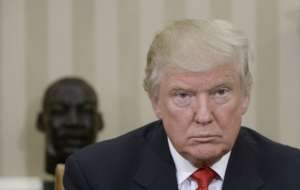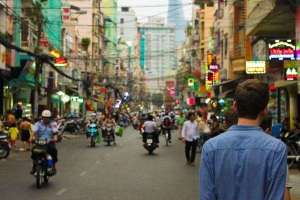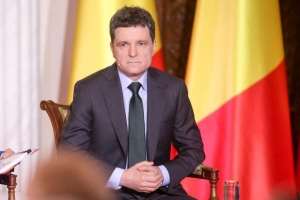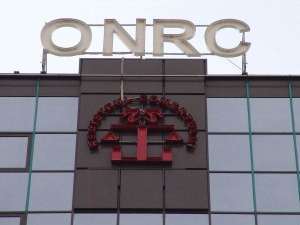The coagulation of the right, namely the merger between the PNL and the PDL, as a counterweight to the left - PSD-UNPR-PC - is more of a communication strategy intended to counter the speeches being made in favor or against Ponta/PSD or against Traian Băsescu, analyst Ionel Niţu says.
In his opinion, the negotiations between the PNL and the PDL are a reaction to the weak results they got in the elections of May 25th, and the principle is simple: the big players are banding together to force the small players to rally behind them. "It is obvious that the Alliance between the PDL and the PNL had already been prepared for some time. Besides, reports about that alliance have appeared in the media several times, but at the time the leaders of those parties denied they were negotiating. Furthermore, the switch of the PNL from the Alliance of Liberals and Democrats for Europe (ALDE) to the European People's Party (PPE) was planned and negotiated previously, and the fact that both parties will be members of the PPE (which may be very interested who replaces Traian Băsescu, on the European Council), makes the campaign for the presidential elections even more interesting".
The analyst believes that the right, given the objective of unification, will have to go through several hurdles, of which the ones derived from the recent history (strife, betrayals) and the pride of their leaders seem to be the most difficult to overcome. Ionel Niţu says: "Regardless of whether or not they join forces officially, the right will support its own candidate in the second round, regardless of who that is. For now however, I think that the right that is taking shape is neutral compared when it comes to speaking out in favor or against Băsescu. The PMP is and will probably remain isolated, and Forţa Civică will more likely join the PDL-PNL rather than the PMP".
The president of the PDL, Vasile Blaga, yesterday said that he does not expect a cooperation with Elena Udrea and with the PMP, and that in his opinion, Elena Udrea doesn't want such an alliance either.
Ionel Niţu considers that the left and the right are relatively balanced in terms of voter turnout, considering the results of the elections for the European parliament. In his opinion, it is not necessarily the alliance of the right or the disintegration of the left that will determine who will become Romania's president this autumn, but rather the charisma, the energy, the force and the vision of the candidates. "Furthermore, there will be twice as many voters in the presidential elections", the analyst further says.
• Ponta: "If I have to run for president, I will gladly do so"
If we look at the numbers alone, things don't look so rosy for the left: 37% plus some potentially 3-4% of the votes of Mircea Diaconu are not enough, they offer no absolute guarantees for the presidential elections of this autumn, analyst Ionel Niţu considers.
"I want to remain prime-minister until 2016, but if I have to run for president, I will do so happily and with confidence", the president of the PSD Victor Ponta said yesterday, in the beginning of the meeting of the CExN of the Party: "In all these years, I have learned that when the country has a president that is a constant thorn in your side, it is very difficult to be a good prime-minister. So, if we don't get a president that works with us, it's going to be very hard to govern well. It's not an accident that Romania was doing the best between 2000-2004 when the government and the president were cooperating".
The president of the PSD said that the PSD now needs to be relaxed in electing its candidate, based on the outcomes of the elections and on what the other parties are doing.
Analyst Ionel Niţu says: "It is obvious that the left is in no hurry. Part of the right- PDL-PNL - has only announced a move, but it has not effectively made it. The other faction of the right (PMP) - i.e. the one that is a real cause of concern for the left - has not announced any moves yet, and it doesn't seem to be in any hurry to do so. It's just like in chess, and the left is playing two games at the same time. It's obvious that if the right doesn't appoint its candidates by July (and the left, which is waiting for the moves on the chess table, doesn't do the same), it will be increasingly hard after that, if not impossible, to build up a new candidate, especially a new face".
The left will not announce the date of its Congress and its candidate until both parties of the right make their moves, the analyst says: "The left is still playing the USL game, recent signs point to the malcontents of the PNL moving to a new political party. The PSD wants to induce the idea that < the USL lives >, even though it is clinically dead, because they have to keep the supporters of the USL captive, or else those voters would gravitate towards other candidates, who are either against Băsescu, or against the system".
Moreover, Ionel Niţu believes that after the statements that the prime-minister made yesterday, Mircea Geoană can no longer be considered a potential candidate of the PSD for the presidential elections, not even as a substitute.
Victor Ponta yesterday surprised the public by announcing that in the 2009 elections he voted for Crin Antonescu in the first round, and then for Mircea Geoană, as he was the head of campaign of the latter. The president of the PSD justified his 2009 election, by saying that at the time, he considered that Crin Antonescu was the change that Romania needed.
Another delicate issue for the left in this year's campaign is the war between the "young wolves" - Robert Negoiţă versus Sebastian Ghiţă. Ionel Niţu considers that the struggle between the two is happening a bit too early, and it shows that the fight over dividing the pie and who gets to be the right-hand man of Victor Ponta is in full swing.
Sources from the PSD say that Victor Ponta yesterday criticized the mayor of district 3, Robert Negoiţă, for having filed a criminal complaint against deputy Sebastian Ghiţă, and told him that this kind of thing is not something to do when it comes to party members, especially not in the midst of the electoral campaign. The same sources said that Negoiţă told Ponta that he resorted to this action because he felt the party wasn't protecting him and this was the method he felt he could protect himself with.
Ionel Niţu also added two more great challenges for the left: "If Victor Ponta runs for president, who will be prime-minister? There are all kinds of strategies being devised, but this could be a major test for the solidarity and the cohesion of the PSD-UNPR-PC alliance. The second challenge, perhaps even more difficult, will be around the presidency of the PSD".
After taking a break during the electoral campaign, the institutions of the state have resumed their arrests and convictions.
The analyst believes that this year the period before the campaign will be difficult, and he wonders whether a possible phenomenon like Mircea Diaconu could happen in the presidential elections.







